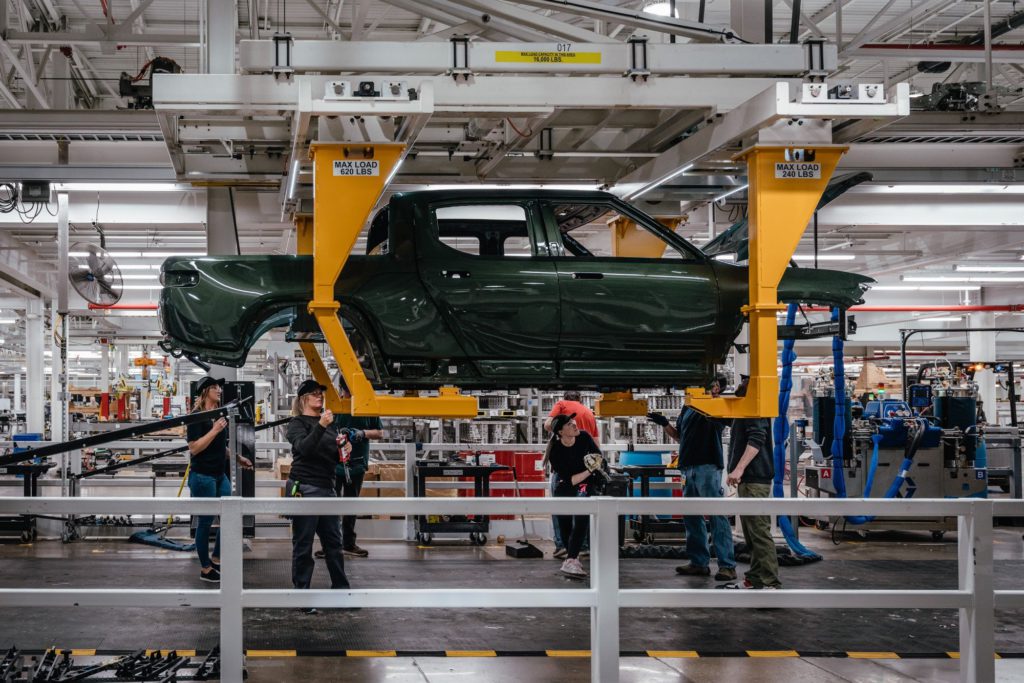(Bloomberg) — Rivian Automotive Inc. is planning hundreds of layoffs to trim its workforce in areas where the electric-vehicle maker has grown too quickly, according to people familiar with the matter.
The cuts will focus on nonmanufacturing roles, including teams with duplicate functions, said the people, who asked not to be identified discussing private information. The actions could be announced in the coming weeks, the people said.
The company, which has more than 14,000 employees, could target an overall reduction of around 5%, the people said. The layoffs are still in the planning stage and nothing has been decided. Rivian has operations in California, Michigan and Illinois, where its plant operates, as well as a presence in the UK and Canada.
Rivian didn’t immediately comment.
The company is pulling back after roughly doubling its headcount over the past year to support a ramp-up in production. Rivian, which makes electric pickups and SUVs in addition to delivery vans, notched one of the biggest-ever US initial public offerings in November as it emerged as a leading challenger to market leader Tesla Inc.
Rivian has stumbled as it grappled with global supply-chain breakdowns and parts shortages. Automakers now face broader hurdles as vehicle sales, including those of EVs, soften with consumers put off by high sticker prices.
Rivian’s shares tumbled about 69% this year through Friday’s close.
The Irvine, California-based manufacturer is poised to join companies across corporate America pruning their operations amid growing worries about an economic downturn. Tesla is cutting 10% of its salaried workforce, while protecting manufacturing jobs, after Chief Executive Officer Elon Musk said he sees a recession as inevitable.
As of the end of March, Rivian had almost $17 billion in cash and restricted cash on its balance sheet to help weather the storm. The fledgling EV maker is backed by investors including Amazon.com Inc. and Ford Motor Co. Rivian has a contract with Amazon to build 100,000 battery-electric delivery vans by the end of the decade.
More stories like this are available on bloomberg.com
©2022 Bloomberg L.P.











